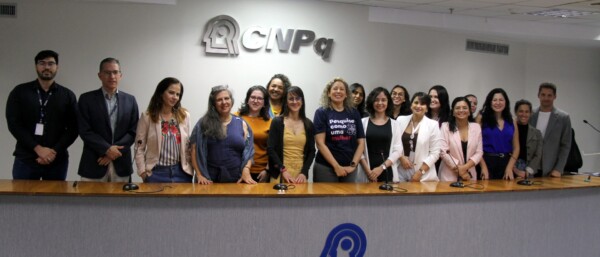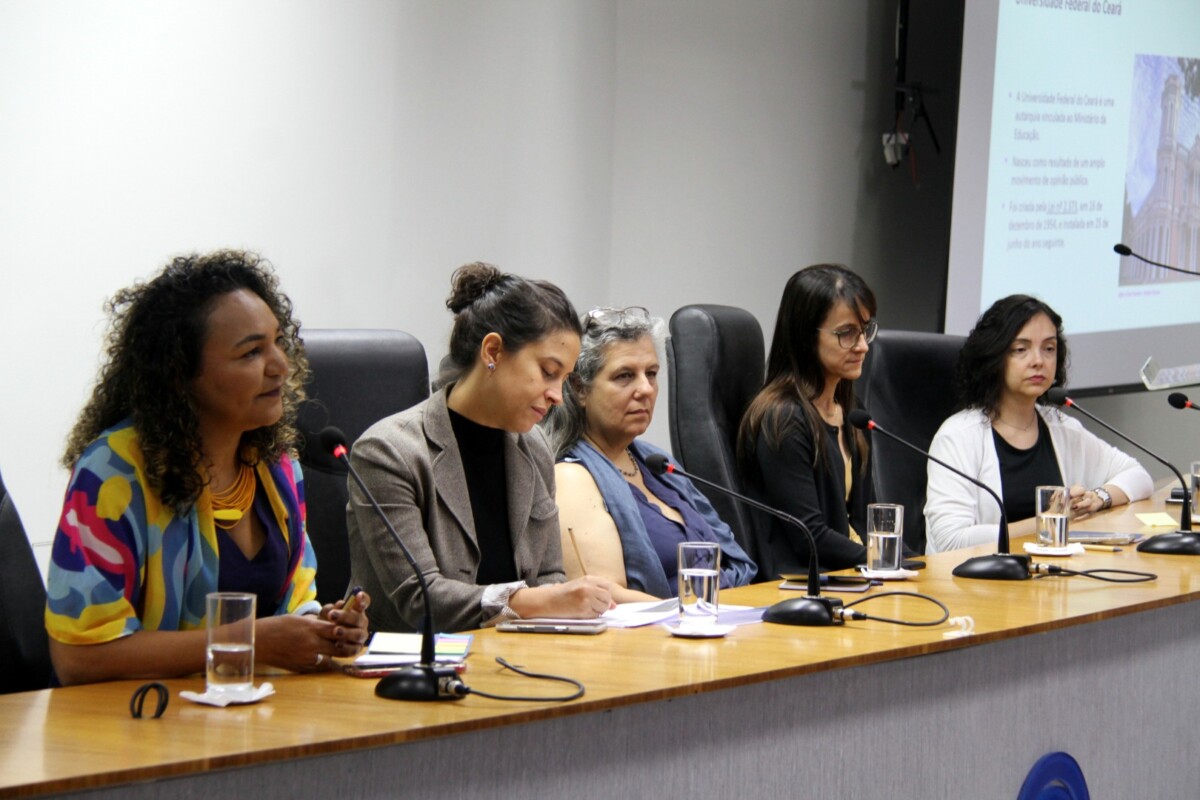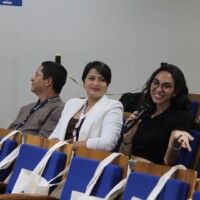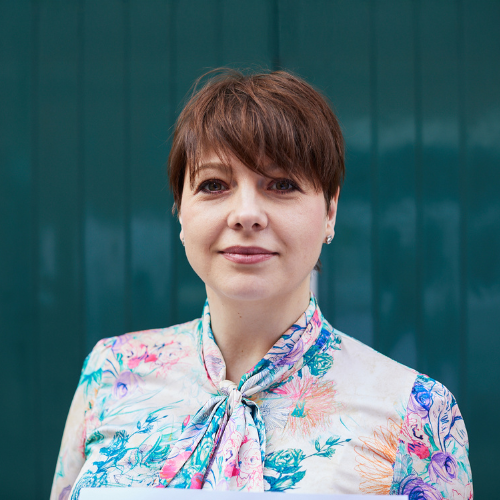
From learning to action: How Brazilian universities are advancing gender equality
When leaders, researchers and award-winning institutions gathered at CNPq headquarters in Brasília and online on 11 November 2025, the sense of shared purpose hung heavily in the air. The national knowledge-sharing event on gender equality in higher education, led by the British Council in partnership with CNPq, designed and facilitated by People 1st International, marked the second and final workshop in a two-part series dedicated to advancing gender equality in Brazil’s higher education sector.
The event brought together the awardees of the Women and Science Award (an initiative developed by the National Council for Scientific and Technological Development – CNPq, the Ministry of Science, Technology and Innovation, the Ministry of Women, the British Council, and the Development Bank of Latin America and the Caribbean), alongside more than 80 participants from universities, research institutions and partner organisations across Brazil and the United Kingdom. It was a day that moved beyond discussion. Across both sessions, participants turned reflection into commitment, linking learning with practical action for lasting institutional change.
From isolated efforts to integrated strategies
The workshop featured the three award-winning institutions from the Women and Science Award, which aims to highlight and celebrate the contributions of women in science and to foster a more inclusive and equitable environment in science, technology, and innovation:
- Federal Fluminense University (UFF)
- Federal Institute of Rio Grande do Sul (IFRS)
- Federal University of Ceará (UFC)
Each has taken distinct but converging paths towards embedding equality into the heart of their institutions.
The stories they shared with workshop participants reflected courage and persistence. Whether creating gender and diversity divisions or units, redesigning recruitment policies, installing inclusive bathrooms, breastfeeding rooms and baby-changing stations, or introducing mentorship programmes, all three showed that progress begins with a willingness to question long-standing norms and build systems that value inclusion as a driver of excellence.
These institutions demonstrated how gender equality work evolves over time, from awareness to structural change. Initial steps such as forming committees or collecting baseline data had grown into more ambitious actions, including institutional policies on equality and anti-harassment, leadership training for women researchers and cross-campus awareness campaigns. The transition from projects to policy was a recurring theme: that sustainable change requires equality to be seen not as an initiative but as part of the institution’s identity.
Discussions explored the importance of data, leadership and cultural change. Participants spoke of the need to “fix the numbers, fix the institution and fix the knowledge”, a call echoed throughout the morning’s exchanges. By collecting and analysing gender-disaggregated data, institutions are learning to see the gaps clearly and act on evidence rather than assumption.
UK experts Gary Loke and Elisa Lavore offered comparative perspectives on how international collaboration can accelerate progress. Drawing on experiences from frameworks such as Athena Swan and the Brazil Gender Equality Framework for Higher Education Institutions, they highlighted that success comes when equity efforts are embedded in strategic plans, linked to performance indicators and championed consistently by leadership.
Designing equality with intention
If the morning was about learning, the afternoon was about doing. Facilitators from People 1st International guided participants through a structured action-planning session, helping each university transform insights into concrete goals to support their application to the Women and Science Award’s Institutional Merit category – which recognises higher education institutions and research institutes for their innovative action plans to promote gender equality.
Using the SMART framework (specific, measurable, attainable, relevant and time-bound) institutions began shaping their next steps. Some aimed to increase women’s participation in STEM research, others to establish formal gender equality committees or develop policies that make recruitment more inclusive.
The process encouraged reflection on institutional readiness. Participants considered questions such as: What data do we have? Where are the gaps? What resources and partnerships can we mobilise? This led to lively exchanges of ideas and examples of good practice, from mentoring networks and gender-balanced hiring panels to inclusive training programmes for staff and students.
The energy in the room was one of purpose rather than urgency. Change, participants agreed, must be sustainable. “Small, well-designed actions are what create big transformation,” noted one facilitator, capturing the collective sentiment that progress depends on consistency and collaboration, not one-off initiatives.
By the end of the session, participants had drafted initial action plans that reflected both ambition and realism. Many emphasised that their work would continue beyond the award application, forming part of a longer journey towards a more inclusive academic culture.
Care, collaboration and leadership
Across every discussion, three ideas resonated strongly.
- The first was care: recognising that equality cannot advance without addressing structural barriers such as childcare, accessibility and the distribution of care responsibilities.
- The second was collaboration: within and between institutions and between Brazil and the UK.
- The third was leadership: the need for visible commitment at senior levels to embed equality as a shared value, not a side project.
Speakers from the UK and Brazil connected these themes to broader frameworks, from the British Council’s Brazil Gender Equality Framework to the National Policy of Care. In doing so, they placed local action within a global conversation about how universities can be agents of cultural transformation.
Participants also highlighted the role of men as allies in promoting equality, emphasising that achieving gender balance benefits everyone. Several institutions noted growing engagement among male leaders and researchers who see equality not as a women’s issue but as a question of fairness, quality and innovation.
Building a community of practice
By the end of the day, participants had not only drafted initial action plans or reinforced existing ones, but also reaffirmed their sense of community. The Women and Science Award, they agreed, is more than a recognition scheme, but rather a catalyst for systemic change. It links data to dialogue, policy to people and local experiences to international learning.
The atmosphere at the close of the event was one of shared purpose and optimism. Institutions spoke of the importance of staying connected and continuing to share learning across regions. For many, the workshops had become a safe and inspiring space to exchange ideas, reflect on challenges and celebrate progress.
As institutions prepare to finalise their action plans ahead of the November 2025 award deadline, one message endures: equality in higher education is not a destination but an ongoing practice.
For the British Council, CNPq and People 1st International, this second workshop closed a series but opened a new phase of action. The conversations that began during the workshop will continue across Brazil’s universities, shaping environments where inclusion is not an aspiration but the foundation of academic excellence.





